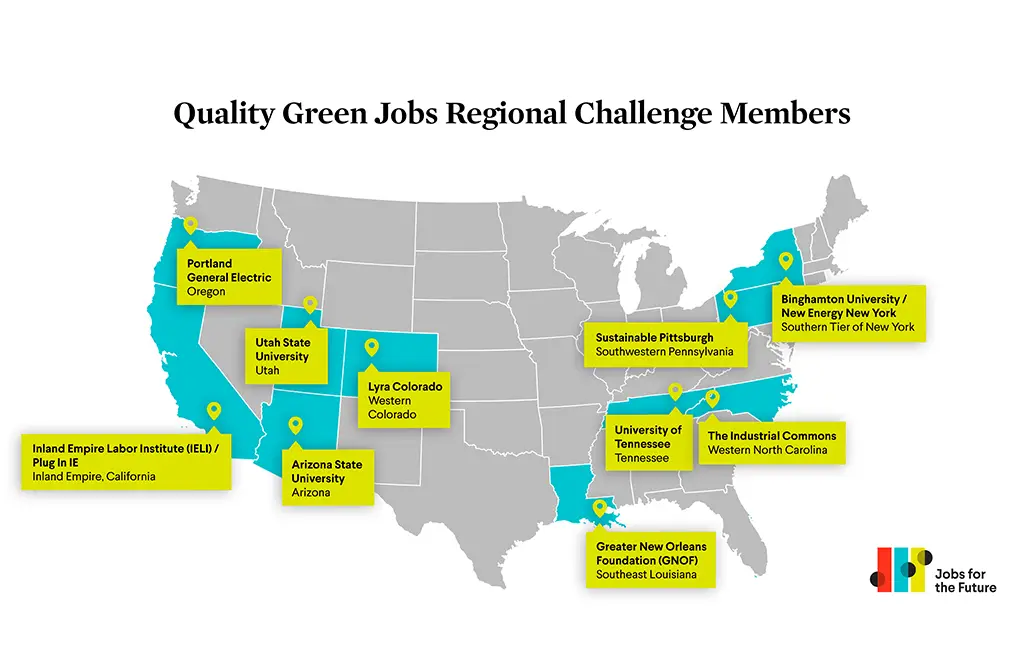UT Team Moves Forward in Green Jobs Regional Challenge

An interdisciplinary team of UT Knoxville faculty members has moved forward in the Jobs for the Future (JFF) Quality Green Jobs Regional Challenge.
The challenge seeks to invest nearly $5 million directly in communities to develop and implement regional quality green job strategies as part of an initiative by Climate-Resilient Employees for a Sustainable Tomorrow (CREST), a career preparation and reskilling initiative of the Ares Charitable Foundation.
The team includes Professor Stephanie Bohon, head of the UT Department of Sociology, Professor Jon Shefner, also in sociology, and Associate Professor Mitsunori Misawa, UT College of Education, Health, and Human Sciences.
They are one of 10 teams that moved forward from the first phase of the challenge, in which their plan qualified for $10,000 participation grants. Their selection for phase two allows them to apply for $75,000 planning grants, with the potential to progress toward more funding.
“Being in phase two means we are able to apply for one of five $750,000 phase three grants,” said Bohon.
Workforce experts project demand for 14,000 new workers in East Tennessee in advanced manufacturing and green construction, while sustainable tourism is expected to grow by 23.4% by 2032.
“East Tennessee faces a labor paradox,” said Bohon. “There are more jobs than people looking for work. At the same time, many people in East Tennessee are not working but could be. A lot of this paradox is attributable to skills mismatch. There is a high demand for workers in the skilled trades—machinists, tool and die specialists, carpenters, and so forth—but few people get that kind of training.”
By advancing in this challenge, the UT team can explore ways to reach Tennesseans who are left out of the job pipeline so that they can get the training they need to get good jobs. They will also work with service providers to make transportation, childcare, and other obstacles less of a barrier to working.
“At the same time, we are interested in reducing environmental damage by focusing on so-called “green” jobs—those that use cleaner practices and produce less environmentally harmful products and services,” said Bohon. “We have a knowledgeable team of UT and local partners, and we are excited to begin the work.”
These jobs diminish the use of fossil fuels, remediate climate damage, and increase the efficiency of energy use through manufacturing, design, and implementation of innovative products and processes and through revising traditional skills and processes to nurture the green transition.